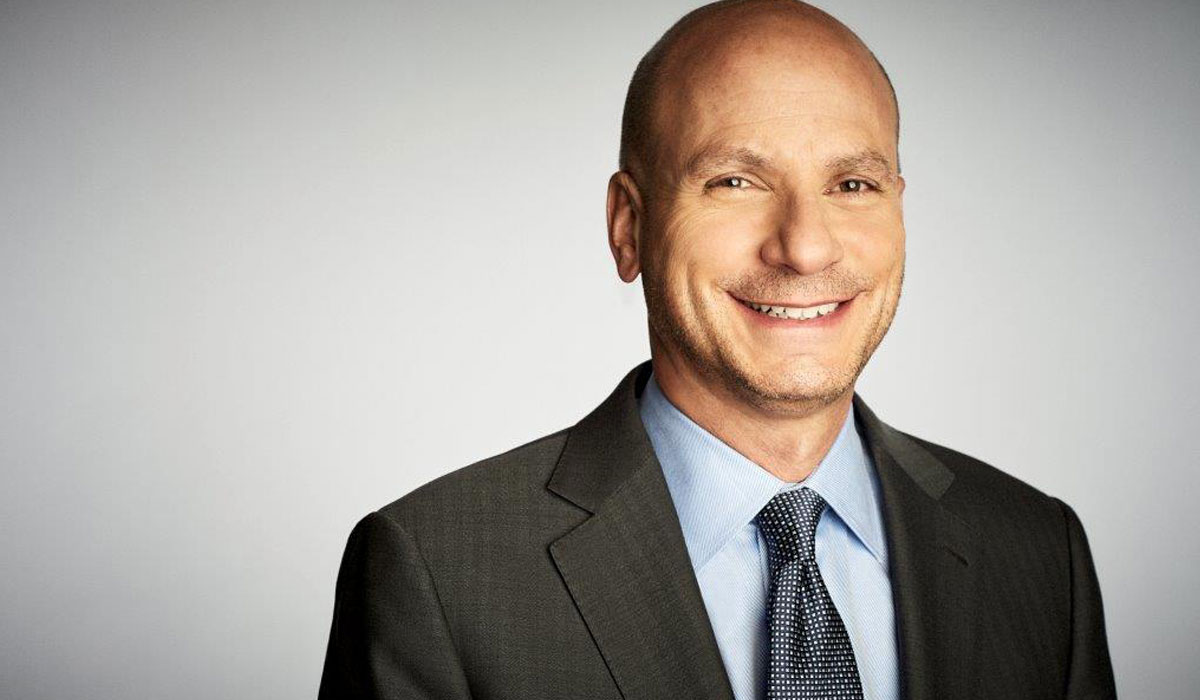Starbucks announced October 8 that Patrick Grismer, the chief financial officer of Hyatt Hotels Corporation, is taking the same role at the java giant. Grismer will succeed Scott Maw, who is set to retire November 30. He will join Starbucks November 1 and assume CFO duties November 30.
Before Hyatt, Grismer clocked time at YUM! Brands and The Walt Disney Company. He served as Hyatt’s CFO since March 2016, where he was responsible for all facets of the global finance function, as well as corporate strategy, asset management, construction, procurement and shared services.
“As a seasoned CFO of multiple global, consumer-facing growth companies, Pat brings tremendous finance expertise, a customer-centric mindset and a wealth of restaurant industry experience to Starbucks,” said Kevin Johnson, Starbucks president and chief executive officer, in a statement. “Pat will be a fantastic addition to the team, and I look forward to partnering with him as we continue to execute against our strategic priorities and drive strong financial performance.”
Grismer held a variety of leadership roles at YUM! over a 14-year period, including CFO. He resigned from the position December 2015. He was YUM!’s CFO for the previous three years, and worked in a number of senior finance and planning positions since 2002. At the time, YUM! said the decision was a personal one so Grismer could move closer to family members.
Grismer spent 10 years at The Walt Disney Company in finance and strategy positions, including vice president of business planning and development for The Disneyland Resort. Grismer began his career as a management consultant with Price Waterhouse.
“I am very excited to join Starbucks and feel privileged to be part of the team responsible for leading this iconic, global company. I have always admired the Starbucks brand and values, and I look forward to working with Kevin and the leadership team to help lead the company into its next phase of growth,” Grismer said.
Starbucks first announced Maw’s impending retirement in late June. He will continue as a senior consultant through March 2019. Maw joined Starbucks as global controller in 2011. Before his role as CFO, he served as senior vice president of Corporate Finance where he was responsible for corporate finance, including accounting, tax and treasury.
Craig Buffkin, founder of Buffkin/Baker, said Grismer’s diverse background would help Starbucks reach a wider audience.
“As a public company, you need CFO with a depth and breadth of public experience, Grismer has that background given his time at Hyatt, YUM! Brands and Disney,” he said. “The more a CFO has seen and experienced in the global landscape, the better they’ll be able to advise the CEO and the board of directors. An added bonus for Grismer is that he has also extensive experience working with consumer facing brands and organizations, that experience will help him in the financial executive seat.”
The move continues a run of hotel executives heading up restaurant operations. Dine Brands, the parent of Applebee’s and IHOP, tapped Choice Hotels CEO Stephen Joyce to the same position last September. It then picked Thomas Song, SVP of corporate development and innovation at Choice Hotels, as CFO.
Inspire Brands, the Roark-backed umbrella company of Buffalo Wild Wings, Arby’s, Rusty Taco, and now Sonic Drive-In, is helmed by Paul Brown, who served as senior vice president of global brand services at InterContinental Hotels Group before Arby’s. Additionally, he worked as president of brands and commercial services and executive vice president at Hilton Worldwide Holdings Inc., as well as positions with Northwest Airlines, Expedia, and McKinsey & Co. Then, in September, Inspire tapped Seth Freeman as the next CMO of Buffalo Wild Wings. Like Brown, Freeman clocked time at InterContinental, where he worked across several brands, “leading high-profile guest experience and design initiatives, partnering with franchisees across over 2,000 locations to drive growth, and overseeing award-winning marketing campaigns for Holiday Inn Express,” the company said. Most recently, Freeman was head of global brand and commercial performance for Holiday Inn.
In September, Bloomberg reported that “significant changes” were coming to Starbucks’ corporate structure, including layoffs at top levels. The C-suite, and this move, were not included in that shakeup.
Johnson said in a memo to employees that Starbucks “must increase the velocity of innovation that is relevant to our customers, inspires our partners, and is meaningful to our business. To accomplish this, we are going to make some significant changes to how we work as leaders in all areas of the company.”
In July, Starbucks’ global same-store sales increased 1 percent. The results were Starbucks’ lowest comps since the company began sharing financials on its investor site in 2011.
Here’s a look at how Starbucks’ same-store sales have slowed in recent quarters:
2018
- Q3: 1 percent
- Q2: 2 percent
- Q1: 2 percent
2017
- Q4: 2 percent
- Q3: 4 percent
- Q2: 3 percent
- Q1: 3 percent
2016
- Q4: 4 percent
- Q3: 4 percent
- Q2: 6 percent
- Q1: 8 percent
2015
- Q4: 8 percent
- Q3: 7 percent
- Q2: 7 percent
- Q1: 5 percent
2014
- Q4: 5 percent
- Q3: 6 percent
- Q2: 6 percent
- Q1: 5 percent
2013
- Q4: 7 percent
- Q3: 8 percent
- Q2: 6 percent
- Q1: 6 percent
2012
- Q4: 6 percent
- Q3: 6 percent
- Q2: 7 percent
- Q1: 9 percent
2011
- Q4: 9 percent
- Q3: 8 percent
- Q2: 7 percent
- Q1: 7 percent
Starbucks’ also said in June that it expects to close underperforming company-operated restaurants in its mostly densely penetrated markets to about 150 restaurants in 2019, up from a historical average of up to 50 annually.













